Feature
Why You Should Read The Book Instead Of Its Summary
Companies like Blinkist, Accel5, Soundview, CliffsNotes inform us that we can get the value of an entire book if we just read or listen to their short 15-minute summary of it. Some companies even claim to have it down to four minutes.
Even though these services have value, to really learn from books, you should be willing to make the effort of actually reading the whole book. Instead of reading summaries or short articles, or skimming and speed reading, sit down and read the book, cover to cover.
Here are some reasons why.
Importance Of Narrative
We started writing down information only around 3200 B.C.E. Before that, we used to transfer knowledge through oral storytelling. Stories are how we share lessons with new generations, how we explain complicated points and how we influence people, and our brains are adapted to processing information through stories.
Unfortunately, in their effort to summarise books, most apps like Blinkist cut out the ‘story’ aspect and choose to focus only on the insights. As a result of this most of the “logical” things laid out in the book will not make much of an impact on you when you only read the summary as we simply aren’t wired to just accept anything told to us, that too in less than 15 minutes. Furthermore, because of the narrative the book provides, you are provided with the relevant context to better understand the profound messages they carry. Take Peter Thiel’s Zero To One– you’d never actually understand (or even believe) all the revolutionary ideas he proposes until you read about how he actually implemented them while creating PayPal or Palantir.
How To Think
Books pack plenty of information and offer analysis which you might not agree with. However, irrespective of your opinion of the findings, it is important to understand how the author arrived at his conclusion. By doing so, you don’t learn what to think, but more importantly, how to think. You learn how to make arguments, how to get insights from data, how to use statistics and stories, and how to make your ideas bulletproof.
This process can only be learned from reading the entire book and not from the nuggets that you get from perusing summaries. Imagine watching the trailer of a movie and not the actual movie. You would get an idea what the movie is about, but till you watch the entire movie you will not understand the nuances.
(Image via Forbes)
Ability To Focus
Who do you think has a bigger attention span, a goldfish or a human being? Well, studies show that now the human attention span is less than that of a goldfish at a measly eight seconds! However, one of the keys to being successful is the ability to focus for a long period of time. The constant buzzing of the phone, email, WhatsApp, DMs, Instagram, Facebook, Twitter, Snapchat- the list of distractions is endless. It’s no wonder we tend to work more but produce less.
To quote Cal Newport, author of Deep Work: Rules For Focused Success In A Distracted World, “To simply wait and be bored has become a novel experience in modern life, but from the perspective of concentration training, it’s incredibly valuable.” When was the last time you were bored and didn’t grab your phone to scroll through Instagram or Facebook?
Here books play a very important role in helping us build up our concentration. They challenge us to focus for a long period of time while trying to absorb the information in them. Reading an entire book and not just the summary requires you to concentrate. So now you know why you might often get sleepy or drowsy after reading just a few pages. Your brain needs time to adjust to focusing on a single thing for a longer period of time because we are increasingly becoming easily distracted. If you can read an entire book, and train yourself to resist the inexplicable urge to pick up your phone, it is an incredible way to build up your concentration.
Develop Empathy
I’m sure you’ve heard the much bandied about travel quote, “It is the journey that matters, not the destination“. It is similar when it comes to books- we don’t read them just for the end results, but because we enjoy the experience (the journey) of reading a book. The journey counts because ultimately that is what changed the author, and that is what will change or affect us.
Joseph Campbell probably described it best in The Hero With A Thousand Faces. Take a look at what he says- “Perhaps some of us have to go through dark and devious ways before we can find the river of peace or the high road to the soul’s destination.” So by not reading the book, we are definitely not going through the ‘dark and devious ways’ or any way for that matter.
Think about Viktor Frankl’s Man’s Search For Meaning. Now imagine all you read is that he was brutally tortured in Auschwitz back in 1943. Next, imagine you read about how on a cold winter morning, at 5 a.m., he was forced to walk 10 kilometres and then made to dig the frozen dirt with his bare hands while the guard was kicking his 26-kilogram body, breaking his remaining ribs. What gives you a better idea of his experience and makes it easier for you to connect with him? Summaries do not have even a tenth of the detail that the full books do.
When you read books, you question and challenge the way you view the world. Whether it’s a book on love and dating (The Game by Neil Strauss) or business and entrepreneurship (The Millionaire Fastlane by MJ DeMarco), or about psychology and economics (Thinking, Fast And Slow by Daniel Kahneman). Books such as these have caused paradigm shifts and you will never really understand why or how they did so, without reading the entire book.
An easy way to rest my case would be this- reading a summary may work if you need to memorise the salient features before sitting for a multiple-choice exam, but it would definitely not work if you were required to present a well-thought-out analytical essay on the impact of the barbarities of the Nazi regime or the importance of metaphorically journeying through hell and heaven to know oneself.
So next time you want to truly understand a book, read the book and not just a summary.
Do you think it’s better to read the book instead of its summary or is a summary enough? Have you ever used Blinkist or apps like it? Share with us in the comments.
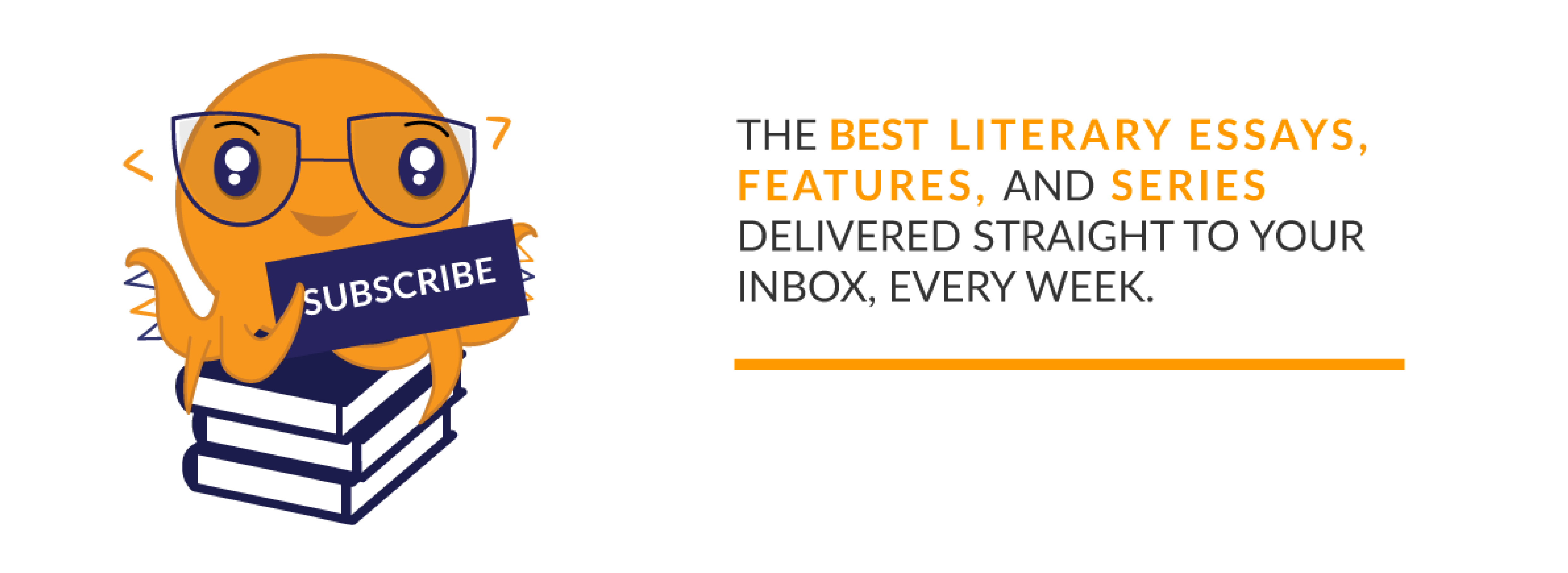


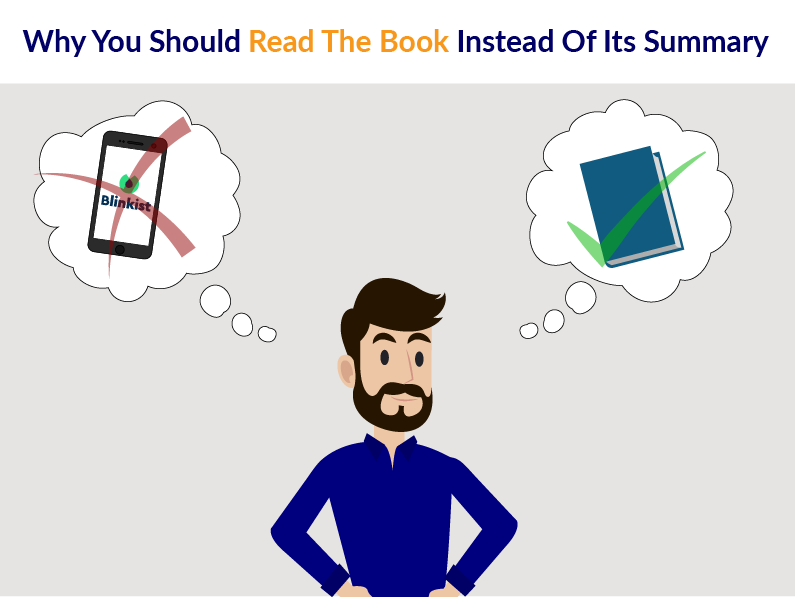
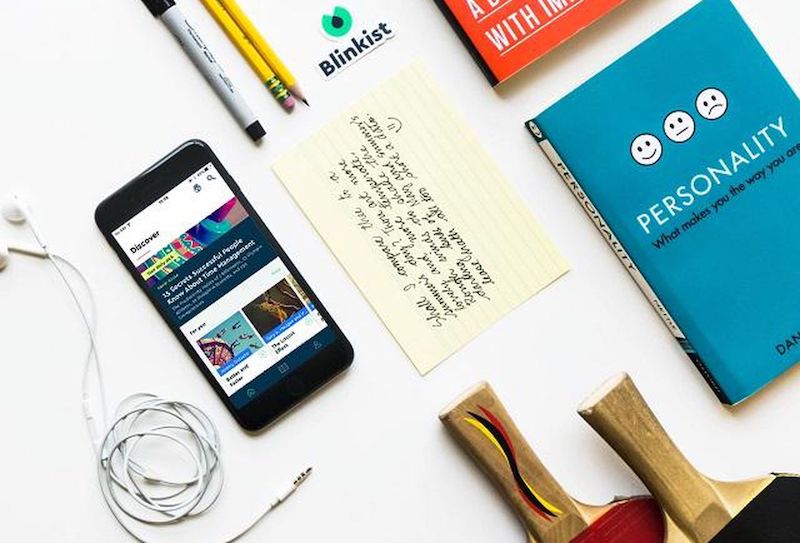
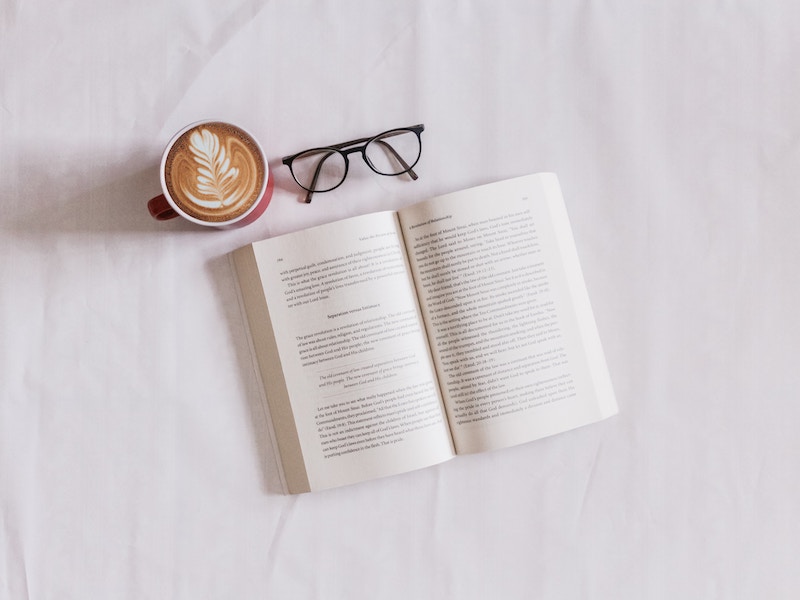
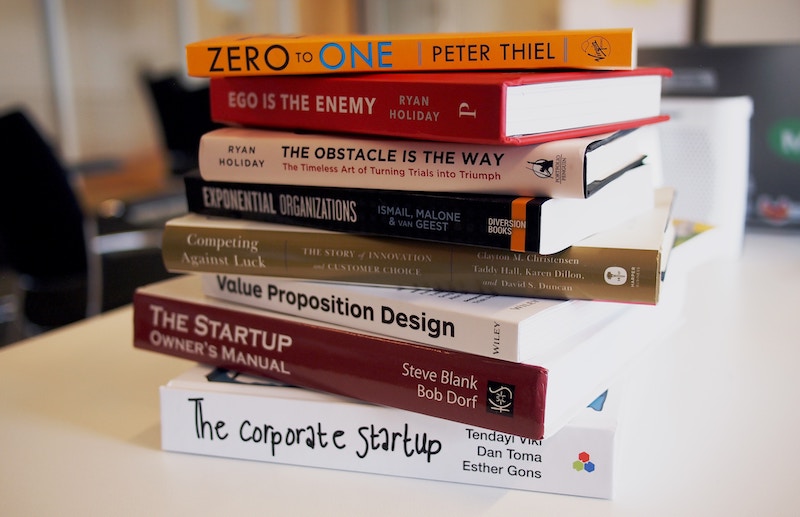

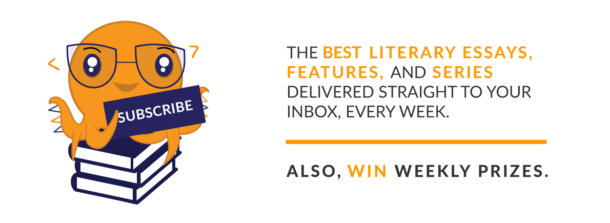
“A room without books is like a body without a soul.”
Great Blog